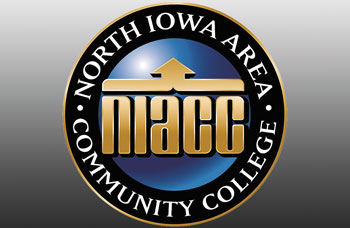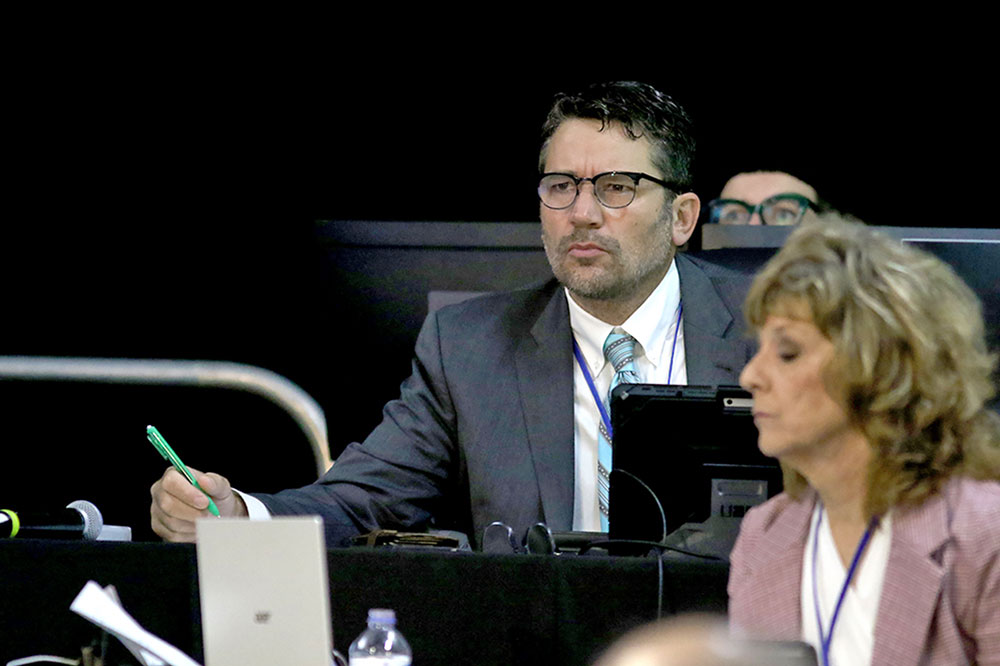CCADC hosts International Economic Development Council representatives as part of accreditation application



By Bob Steenson, bsteenson@charlescitypress.com
Two representatives of the International Economic Development Council were tight-lipped as to what their recommendation would be regarding the Charles City Area Development Corp.’s application to be accredited by the organization.
But asked about their impressions of the community at a dinner Wednesday evening, the second day of their three-day visit, both had high praise.
“A very, very well-prepared community. Very impressive. Very impressive,” said Jim Fram, executive director of the Missouri Economic Development Council.
“The leadership — public sector and the private sector — all seem to be kind of united in wanting to do what they can to make sure Charles City is ready for the future. That’s what it’s about,” said Fred Welch, senior director for regional economic development with the Greater Houston Partnership in Texas.
The two members of the International Economic Development Council (IEOC) were visiting Charles City as one of the last steps in the accreditation process.
The first part was the Charles City Area Development Corp. submitting an in-depth, lengthy application explaining the organization’s structure, development, activities and goals.
Fram and Welch took the application, did an analysis and made a presentation to the 36-member IEOC committee.
“The committee votes up or down whether to go ahead and do a site visit, and that’s what we’re doing now is the site visit,” said Fram.
“This is a real important process,” he said. “There are about 3,500-plus economic development organizations in the United States. Right now, 65 of them are accredited. If you achieve accreditation you become a member of a very elite group.”
Fram said the designation of being an accredited economic development organization gives the local group “a lot of credibility,” when dealing with corporate real estate executives, site location consultants and others looking for a community in which to locate a business.
“That accreditation says this group is doing things right. They’re doing things legally, conforming to standards. They’re doing things the way that are recognized in the profession as best practices, and gives a lot of that credibility,” Fram said, adding that it’s analogous to the accreditation that colleges and universities seek.
After their visit ended, the two will write a report on their findings and impressions and present that report to the 36-member IEOC committee.
“Most of them will have questions that we will hopefully be able to respond to, and then they’ll vote up or down whether to accredit,” Fram said.
“I’m reluctant (talking to) the media to predict what 36 people from all over the country are going to do, but this has been a well-prepared community for this process,” Fram told the Press.
Fram joked that he and Welch are both people who have “failed at retirement” a couple of times and stay active in the economic development community. They’re both members and have been past board members of the IEOC, and Fram is chairing the committee this year.
They said they enjoy making the site visits because they always come away with some good ideas
Welch said, “It’s an interaction where we’re asking questions, they’re asking questions, so it helps me, hopefully, stay at the top of my game, so I can take some things back to the people I work with, even in the Houston region.
He said the fundamentals and principles of accredited development organizations are the same, whether in communities the size of Charles City or the size of Dallas.
Asked if it was unusual for a community the size of Charles City to have its development organization seek accreditation, Fram said, “Kinda, sorta.”
He said he thought the smallest community so far to gain accreditation was Ada, Oklahoma, but he didn’t know what its population was.
A quick Google search showed Ada’s 2020 population at 17,239, more than twice Charles City’s 2020 population of 7,396.
“But it’s the same requirements and the same process whether it’s Ada, Oklahoma, or the Dallas Chamber of Commerce,” Fram said. “It’s all treated the same and they all get the same recognition and the same process. There’s no difference. No level of population is treated any differently.”








Social Share